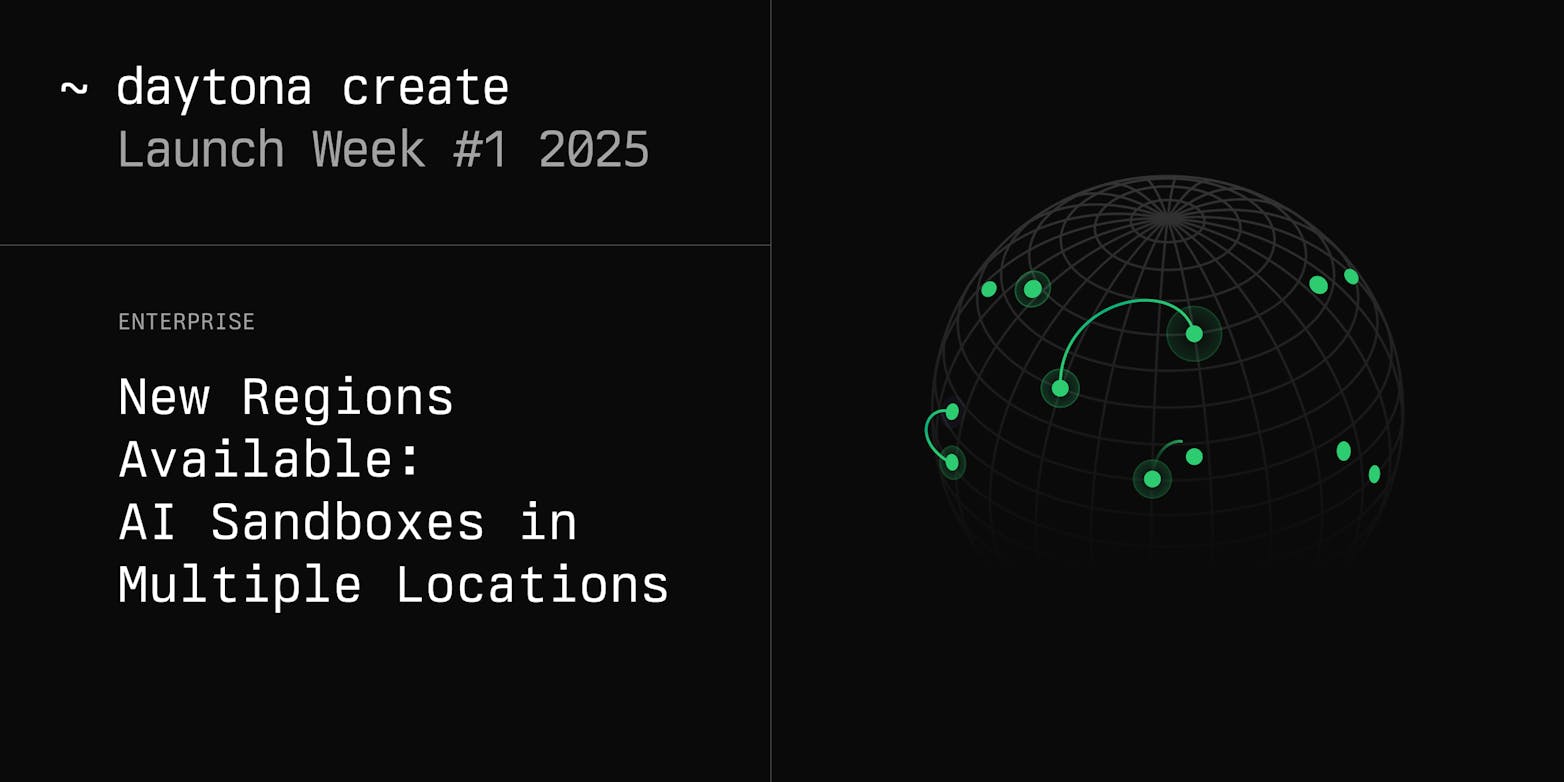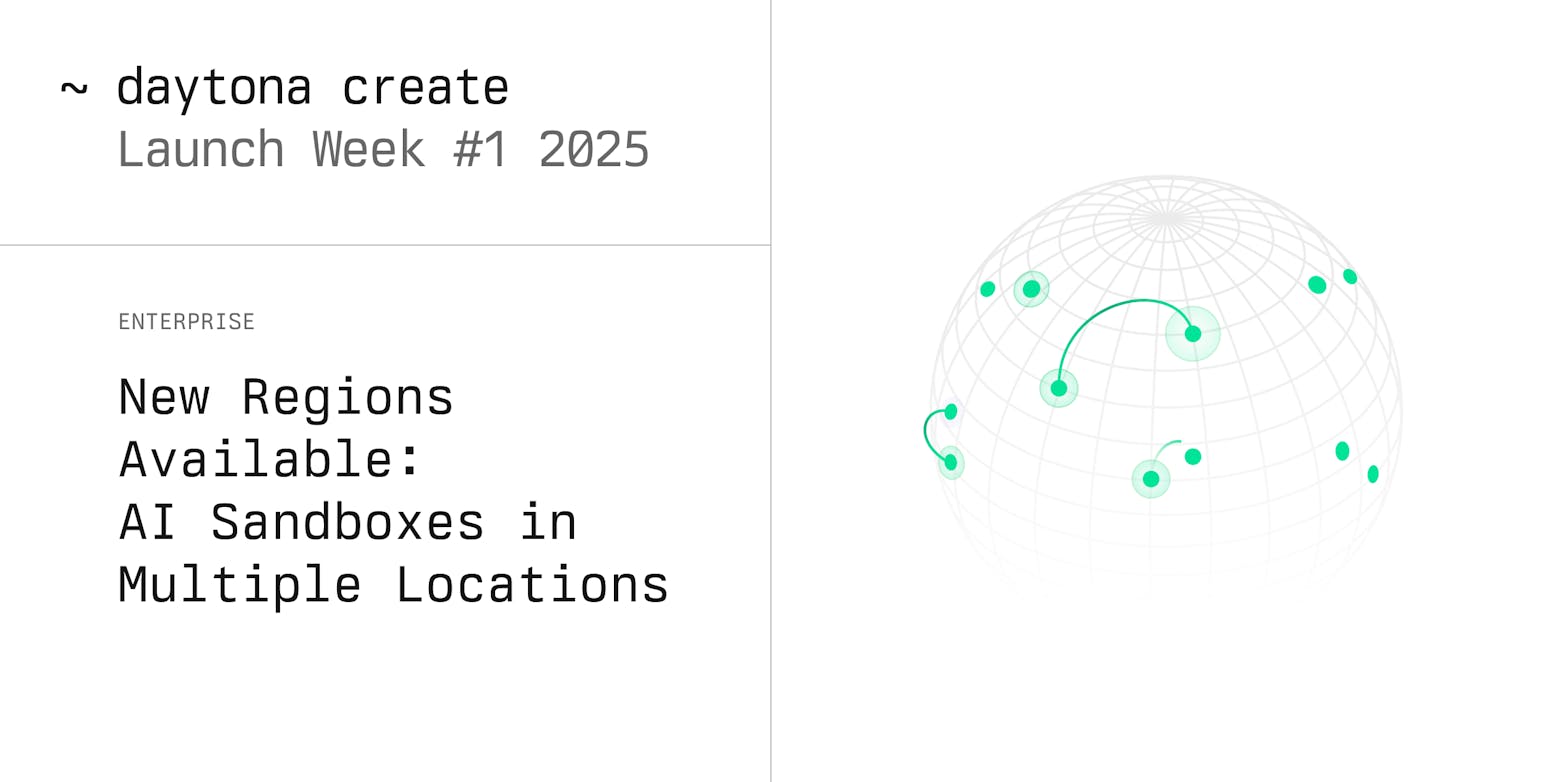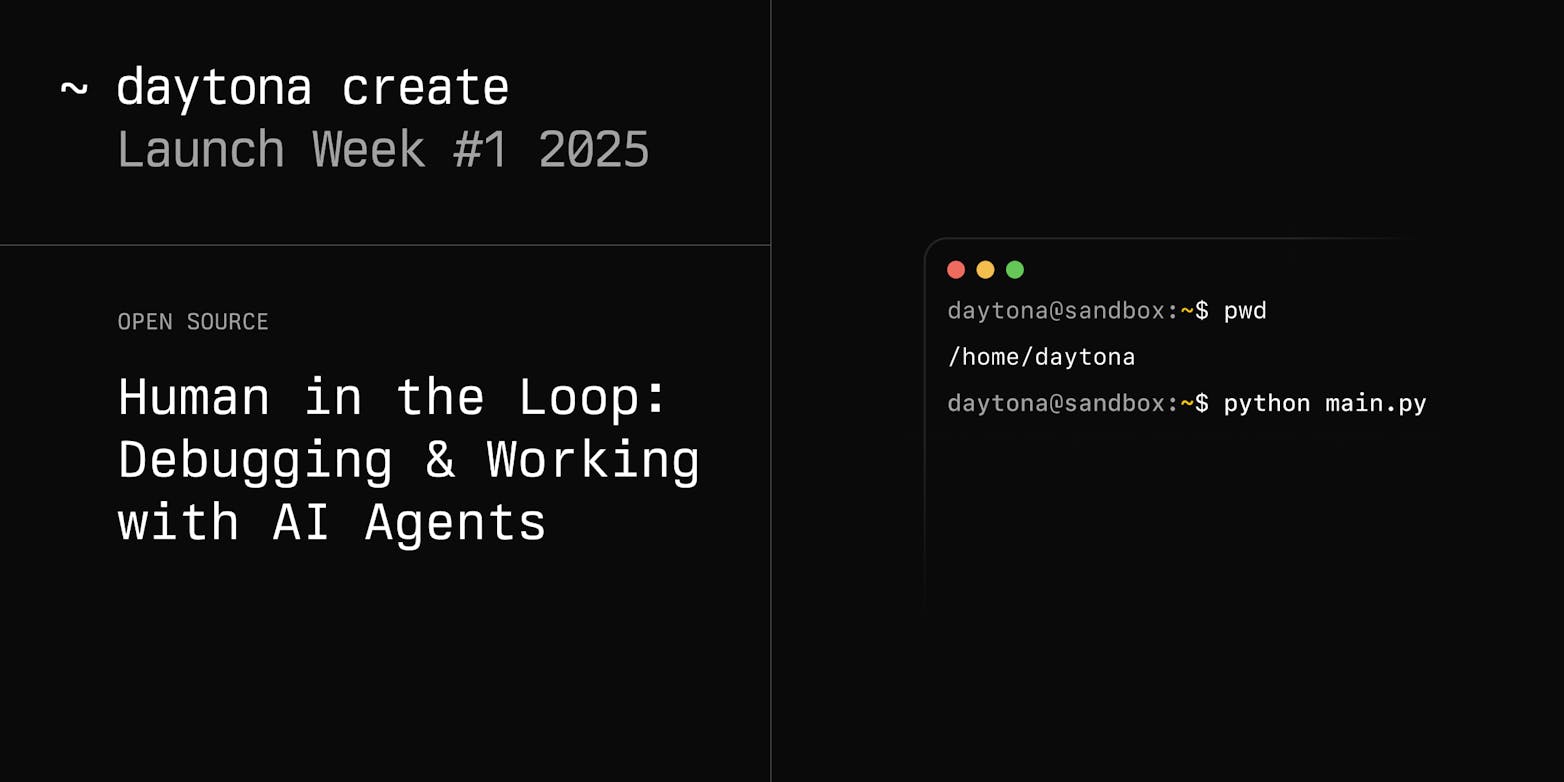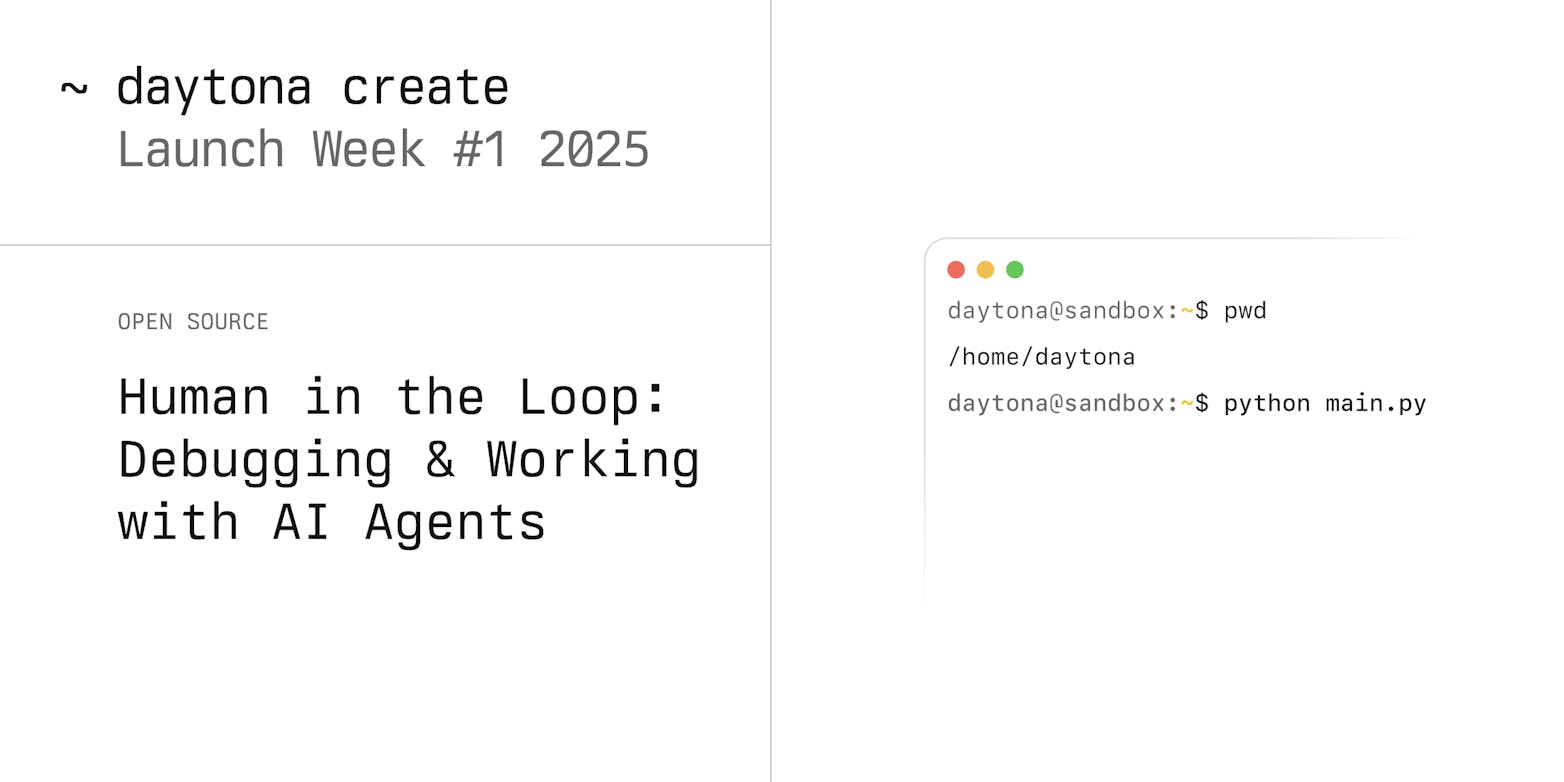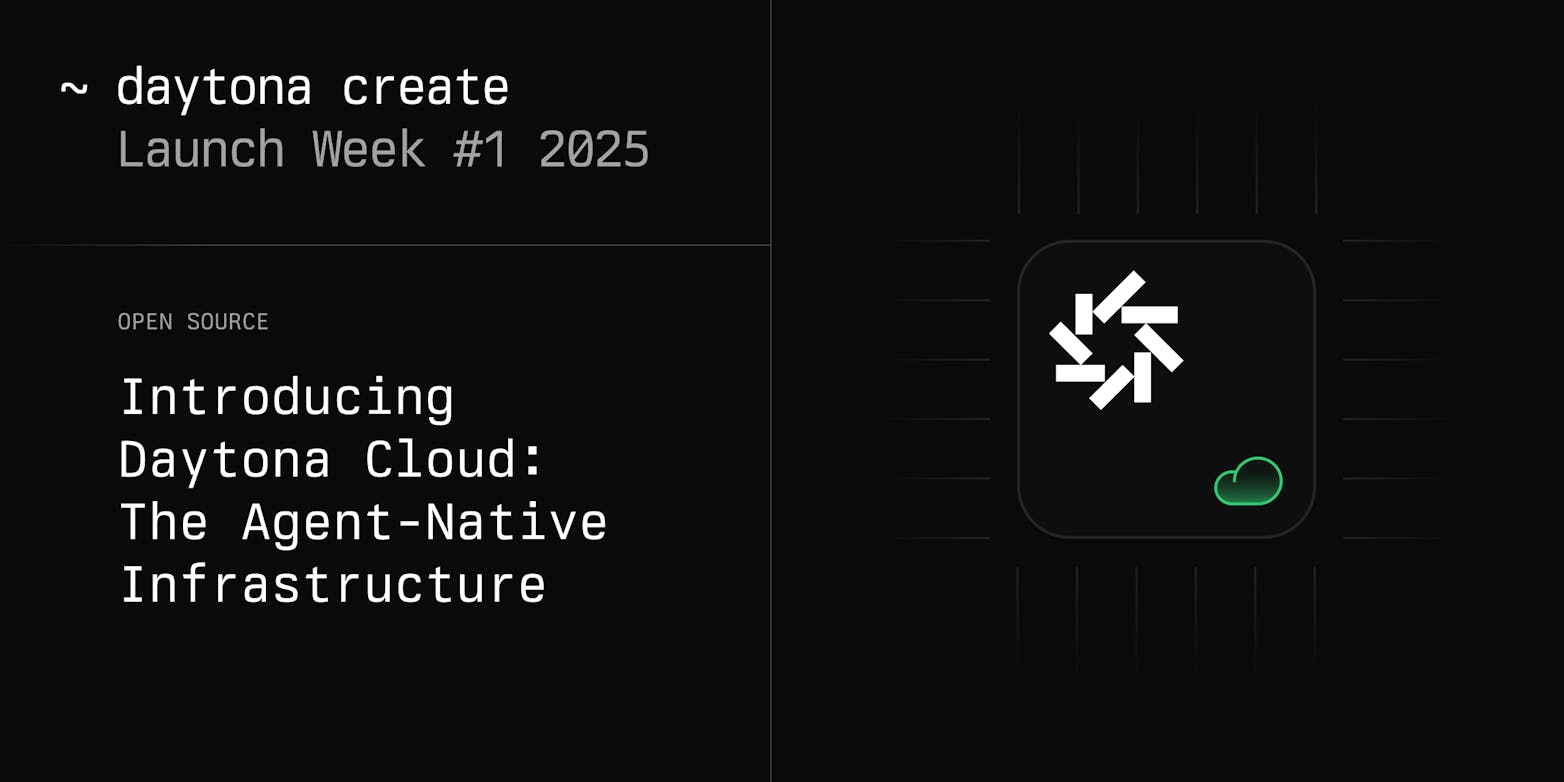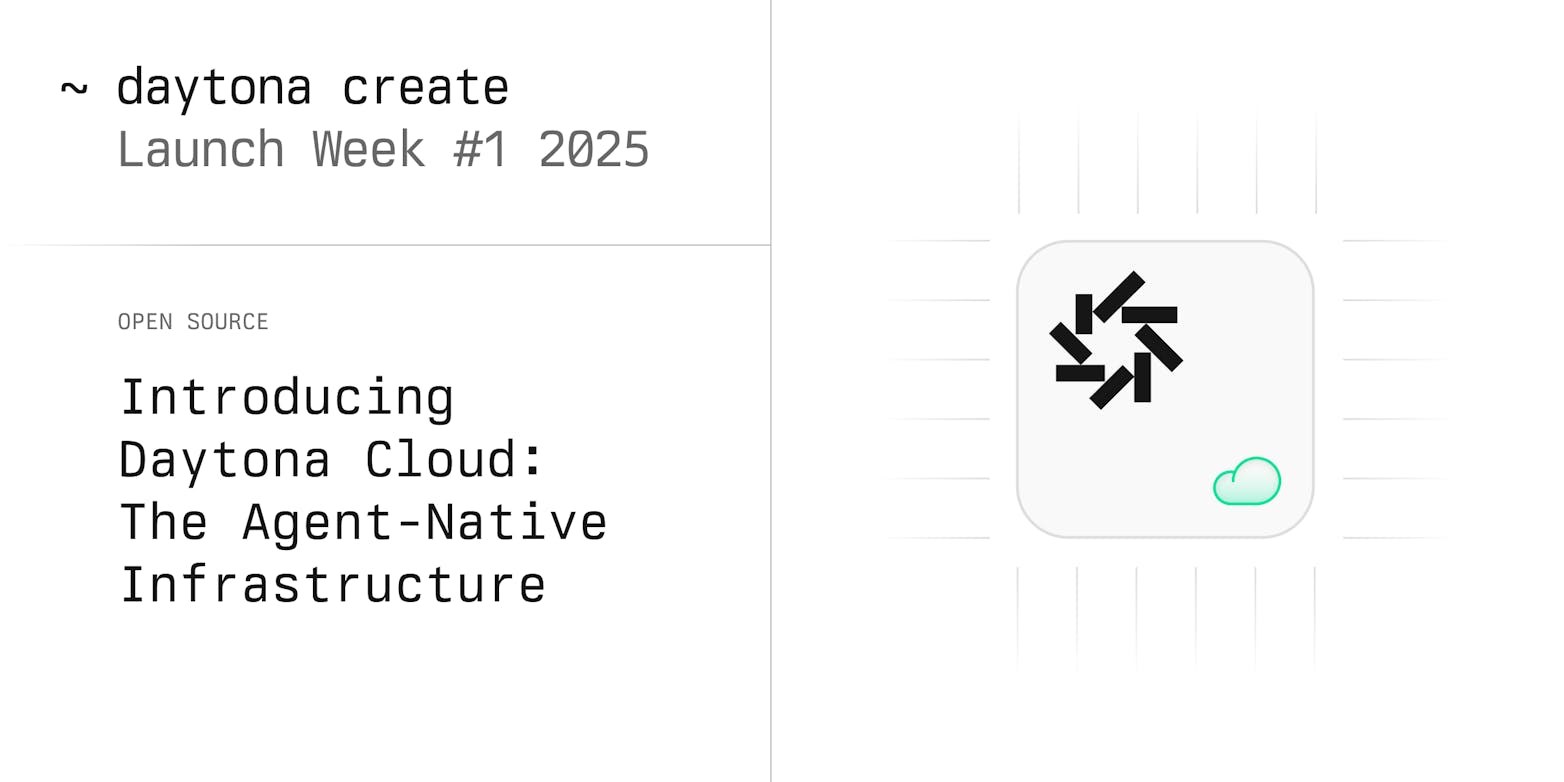As we conclude our launch week focused on Daytona's pivot to AI agent runtimes, we look toward the future. A future where AI agents are deeply integrated with development tools to solve complex problems.
Today, we're unveiling the Daytona MCP Server designed to power this agentic future.
TL;DR
Introducing Daytona MCP Server, enabling AI assistants like Claude, Cursor, and Windsurf to directly leverage Daytona's capabilities via a standardized protocol
MCP Server is available today through the Daytona CLI, allowing agents to programmatically create sandboxes, manage files, execute code, and more
These capabilities position Daytona as critical infrastructure for the next generation of AI systems
Introducing Daytona MCP: Bridging Agents and Tools
Modern AI assistants like Claude, Cursor, and Windsurf are incredibly powerful, but they often operate within their own interfaces with limited access to external execution environments. The Model Context Protocol (MCP) is emerging as a standard way for these agents to discover and utilize local capabilities.
The Daytona MCP Server allows compatible agents to leverage Daytona's powerful runtime capabilities directly:
With the Daytona MCP Server, agents can:
Discover Daytona capabilities automatically
Create and manage sandboxes programmatically
Upload and download files to/from sandboxes
Execute code or commands securely in isolated environments
Clone repositories for source code access
Generate preview links for web applications running in sandboxes
For users, this means their favorite AI assistants can use Daytona's unique runtime capabilities seamlessly, without having the overhead of manual integration.
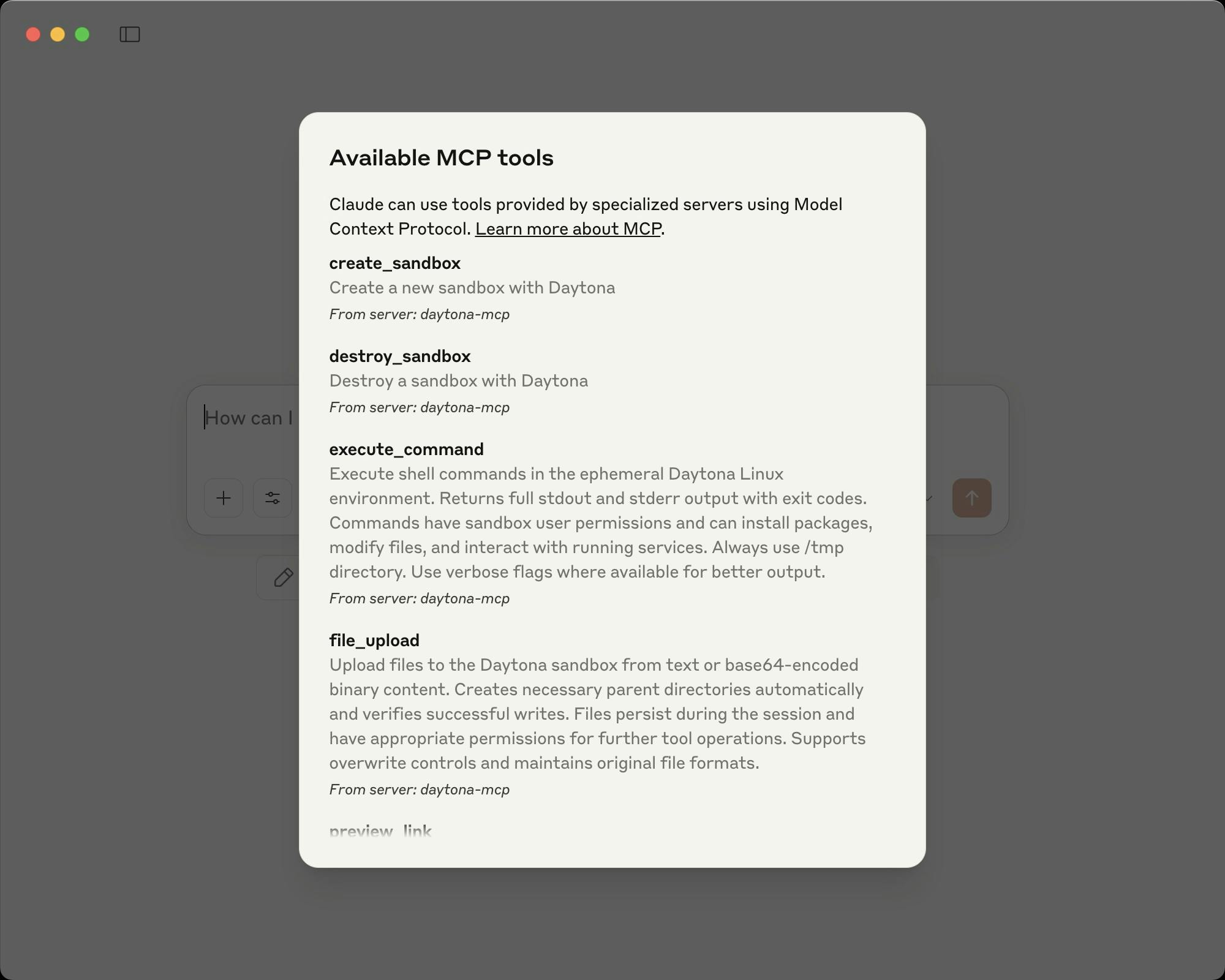
Getting Started with MCP
Setting up MCP integration is straightforward with virtually no setup using the Daytona CLI:
1# Install or update the Daytona CLI2brew install daytonaio/cli/daytona34# Log in to your Daytona account5daytona login67# Initialize MCP for your preferred agent8daytona mcp init claude # For Claude Desktop/Code9# Or: daytona mcp init cursor10# Or: daytona mcp init windsurf1112# For other agents, get the configuration to add to their settings13daytona mcp config1415# Start the MCP server (often handled automatically by the agent)16daytona mcp start
Once configured, your AI assistant will automatically detect Daytona's capabilities and can start creating and using sandboxes as needed.
Real-World MCP Use Cases
Here's how agents are already using the MCP integration:
Code Generation and Testing
When asked to create a React application, an agent can:
Create a Daytona sandbox with the appropriate Node.js environment
Generate and upload the React code
Install dependencies
Start the development server
Provide a preview link to the user to see the application running
Data Analysis Pipeline
When analyzing data, an agent can:
Spin up a Python data science sandbox
Upload datasets the user provides
Execute analysis code in a dedicated environment
Create visualizations accessible via preview links
Download or store results
The Future of AI-Enhanced Development
The MCP integration represents Daytona's commitment to being the foundational infrastructure for Agent-Native systems. We're providing not just the execution environments, but the tools needed to seamlessly connect AI assistants with development workflows.
As Richard Feynman famously said, "The inside of a computer is as dumb as hell, but it goes like mad." With Daytona MCP, we're enabling an entirely new kind of computing, one where AI assistants have direct access to powerful execution environments.
Try the MCP server today and see how it can transform your AI-assisted development experience.





